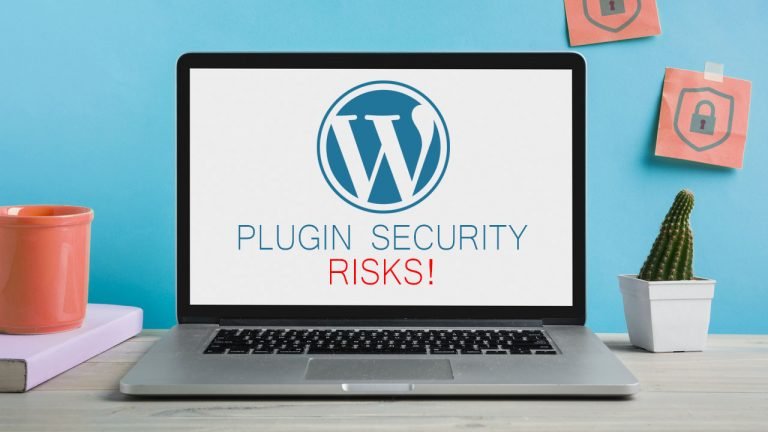
If you use WordPress, you know how much of a godsend plugins can be.
The ability to add functionality to your website quickly and easily via installing and activating plugins is one of the reasons why WordPress reigns supreme in the web design and development world. However, when thinking about security, plugins can cause some issues.
Often times the way hackers or malicious actors gain access to WordPress websites are through security holes in plugins. That means that the more plugins you have, the more holes there could possibly be.
In order to reduce this risk on the website, we will outline the best practices for reducing WordPress plugin security risks.
Use Fewer Plugins
This may seem like a no-brainer, but many people overlook this as a possible way to keep their site safe. As we explained earlier, the more plugins you have the more risks there could be.
That’s why a great way to reduce the security risks surrounding WordPress plugins is to avoid using them for adding very small pieces of functionality for your site.
So, if possible, add functions and custom code directly instead of relying on a plugin to do that for you. While this may seem like a tall order, it is certainly easier than hiring a developer to clean up a hacked WordPress site.
Uninstall Plugins That Haven’t Been Updated
It’s an unfortunate fact that sometimes developers are not able to keep their plugins up to date. And one of the top reasons WordPress plugins are updated is because new security issues being patched or fixed by the developer.
That means if you have a plugin on your WordPress site that hasn’t been updated by the developer in months or years you should look for an alternative. Not only will plugins that are regularly updated work better, but they are also often more secure than those who go without updates for a long period of time.
Implement A Firewall
Even if WordPress plugins are updated frequently, that doesn’t 100% guarantee that they will be secure. That is why it’s also a common security practice to implement a firewall on your WordPress site using a firewall plugin
This will eliminate the ability for hackers or malicious actors to access your site through security holes they may find in your plugins. In addition to being a best practice for reducing plugin risks, it will also help you in a broad range of other areas. Generally, WordPress firewalls stop things like brute force attacks, and other common vulnerabilities experienced on the WordPress platform not related to plugins.
Using a firewall is like WP Security 101, and having plugins that do the job is one of the things that us love WordPress (most out of the box website builders have no firewall feature, and generally weak security in comparison).
Keep Plugins Updated
Some people never check back in on the plugins they use to add functionality to their WordPress website. This can be a huge issue. Because as we mentioned before, the main reason why developers update plugins aren’t just to upgrade their functionality, but to make them more secure as new security standards are developed and as new techniques hackers use are revealed.
Luckily, WordPress provides a way to keep your plugins updated right in the back end of the admin panel. So check the plugins area of your WordPress admin often to ensure all of your plugins are continuously up to date.
Delete, Not Just Deactivate
It’s a common thing for people running WordPress websites to find a new plugin that meets their needs or to realize that a particular plugin isn’t providing the value you thought it would. Most commonly, WordPress admins just deactivate this plugin.
However, if the plugin still exists on the site then it could still be presenting security holes for hackers or malicious actors to exploit. That is why instead of just deactivating the plugin, you should delete it altogether. Additionally, you should check your WordPress plugin directory on your server to ensure no files were left over when the plugin was deleted from your site.
Choose Well Rated Plugins
The WordPress plugin directory provides a rating system and feedback system that is directly integrated into the platform. So a good way to ensure a plugin is going to both work well and be secure is to check these things out. By checking the ratings, you are able to see what other WordPress admins think of its functionality.
Additionally, you can see the frequency of updates that have been pushed out for any particular program. And as we established earlier in this article, it’s essential for a WordPress sites security that plugins be updated regularly. The WordPress team also provides a support forum, where often you will find discussions about a particular plugin.
This forum will give you even more insight into a plugin and it’s developers nature. In addition to the WordPress plugin directory and forum, a simple Google search will reveal lots more opinions of the plugin.
Only Use Safe Plugins
Often times you will find plugins off the WordPress plugin directory. While some of these plugins are okay, you need to be wary of them. The WordPress plugin directory checks certain things like minimum security and performance standards.
That means plugins that don’t go through this system could possibly be insecure without the developer even knowing. So if you do decide to use third-party plugins, be sure to get them from reputable sources whom you can source good reviews for on the web. Often times WordPress plugins that are paid have a higher degree of quality than those that are free.
Conclusion
The plugin function is one of the things that is keeping WordPress as the #1 CMS out there.
However, with security becoming a bigger and bigger concern, you need to know the best practices when using plugins. Adding extra functionality to a website with a click of a button is a huge advantage.
However, if it comes at the cost of comprising your site’s security, you should just find other ways to add that functionality to your site. But, the issue of WordPress security doesn’t just stop with good plugin practices. There are other ways to keep your site secure that you should think about if security is one of your top priorities.
